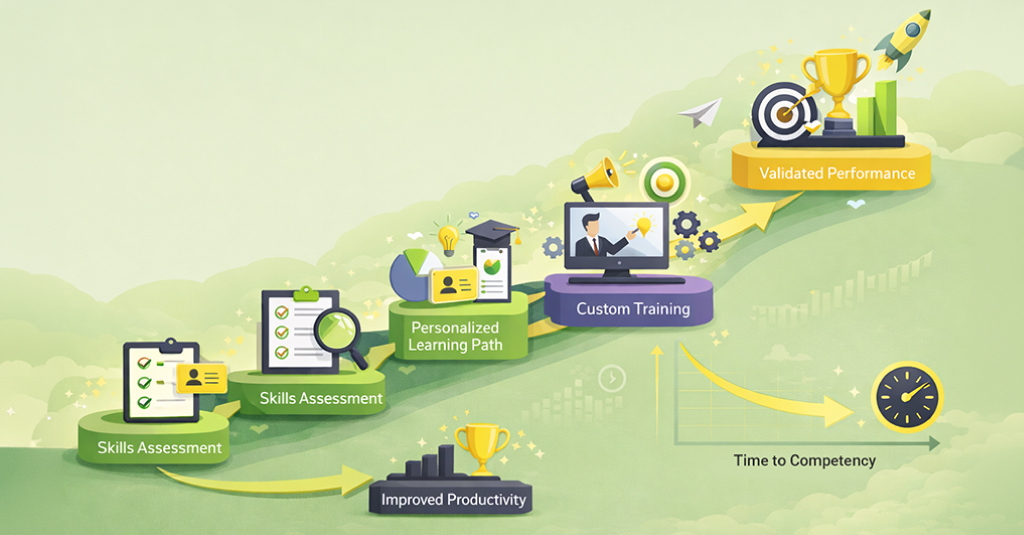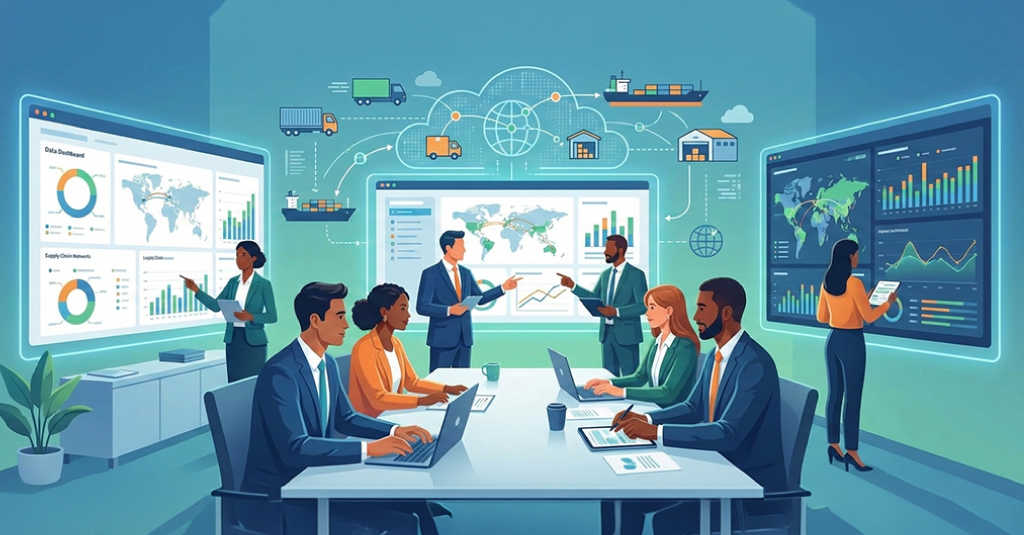COVID-19 has adversely affected the normal way of doing business globally. Even the education and training sectors are no exception. Though online collaboration platforms, such as Zoom, Microsoft Teams, and Google Classroom, are some relief to organisations, the sudden shift to the virtual world has not been all that easy. Globally, industry leaders have been facing new challenges everyday in coping up with this big change.
For corporate employers, ensuring business continuity, compliance, and maintaining productivity while a large number of workers are working remotely, is a major concern. Organizations are trying their best to offer training that would keep the productivity intact and assure survival. However, offering training that gives optimal output still remains a challenge!
That being said, it is reassuring to find that people who have both successfully migrated to eLearning and those who are still working on it are willing to share their knowledge with others so that the process of learning can continue unhampered virtually.
There are many communities and online programmes that share good practices on remote working. For example Elliott Masie, the educational technology expert, has set up a community called Learning and the virus, to share good practices and offer support and resources.
Let us see what suggestions other industry leaders have offered organizations in this worldwide crisis for effective continuity of their businesses.
The Big Reset
Josh Bersin says that it is the time to rethink the processes, be it simplifying your budgets or understanding and empathizing the human resource. He especially focuses on digital ways of working. As the last decade was all about digital transformation, it is now the time to deploy them.
Offices meant the tiring struggle through emails, conferences, and meetings that seemed like a never-ending process. However, now we don’t have a choice but to opt for remote working. Making it more human is the only way to survive through this!
The Corporate Impact
According to Craig Weiss, CEO and lead analyst for The Craig Weiss Group, merely working from home might not appeal to many corporate workers, and it might be especially challenging for new employees, but a chance to improve their skill set would be universally welcomed. Workplaces can arrange for eLearning systems that will let your employees choose a training model based on their likes and engagements. Moreover, eLearning systems can provide them training materials that can remain with your employees as long as they want, and the employees can revisit them whenever they feel the need to do so. These training sessions can also be a mix of personal and professional development as well.
The Quick Response
CEO and Lead Analyst at Talented Learning, John Leh says, the industry has been quickly adapting to the crisis. It is learning new ways to enable and strengthen the eLearning and collaboration that are valuable and no cost products and services. Further, he categorizes these platforms into seven categories.
1) Learning Technology Offers
2) Collaboration and Team Tools
3) Learning and Business Services
4) Virtual Learning How-To Resources
5) Remote Work How-To Resources
6) Business Continuity and Management Resources
7) Health Education Content
Connecting Securely
Lynne Callister, an instructional designer with over 20 years’ storyboarding experience shares insights about compliance and security. She mentions the spike in email phishing in the past 3-4 weeks and how can we safeguard our data while sharing it over multiple platforms.
The first rule is to keep your software versions updated. The information you share should be as short as possible. Again, not neglecting the red flags, deleting suspicious emails, recognizing patterns of the regular emails are also a few important things to remember while you are connecting from remote locations.
Empathizing With Your Workforce
Change in itself can be scary, says Christopher Pappas, the Founder of eLearning Industry’s Network. According to him, unknown outcomes are one of the biggest employee fears that organizational change management online training can overcome. Therefore, let your employees know that it is okay to take time to learn the new way. Let them know how they fit into this whole scenario. Offer them the support they need during this crisis.
Conclusion
As expressed by the industry-leaders, here are the key takeaways of it.
We need to –
- Quickly adapt to the changing demands of the industries.
- Assess different (digital and easy) methodologies to collaborate, create, and learn.
- Understand the evolved industry ecosystem and revise the work processes.
- Enable people to scale up their skill and knowledge to cope up with the crisis.
- Help people to understand their role in the change.
Where businesses had just started implementing the strategies for 2020, a jolt of COVID-19 has brought everything to a pause. We know that the whole world is going through this, and we will come out of it stronger. For now, all we need to do is to hang in, try our best to utilize this unexpected halt and turn it into an opportunity!



















